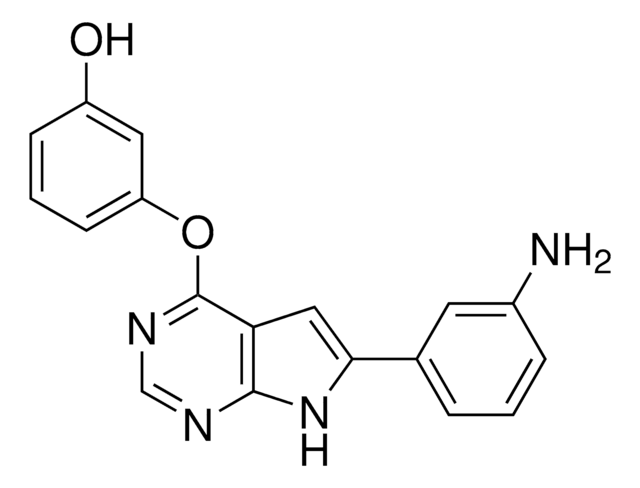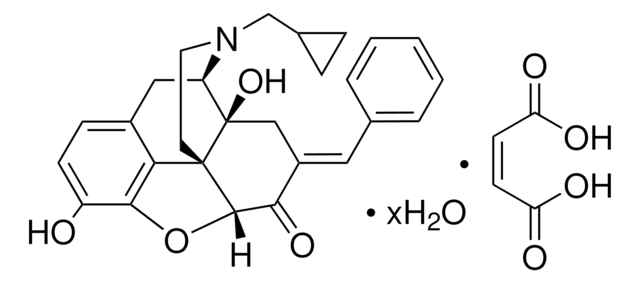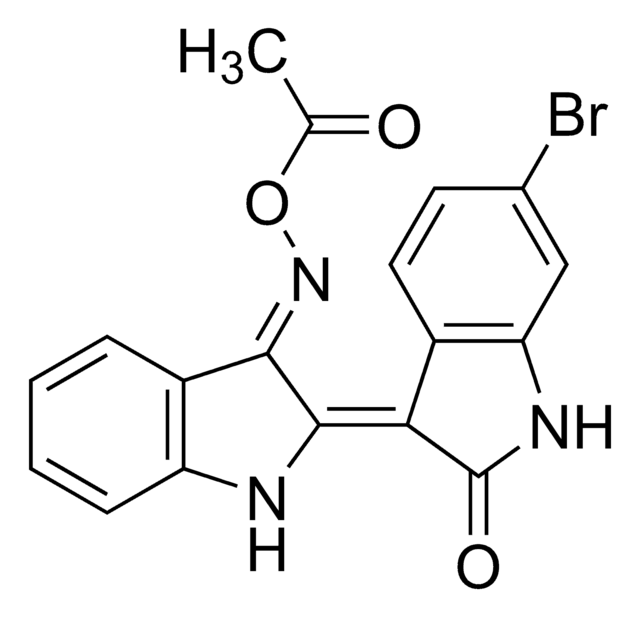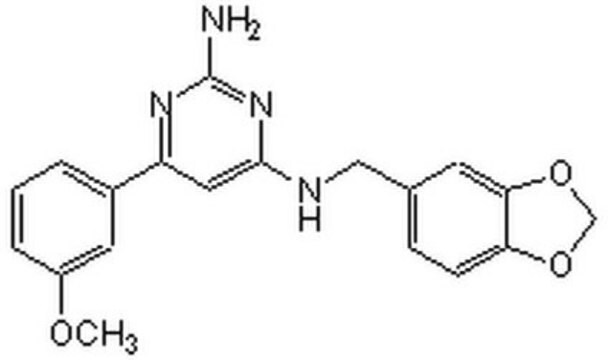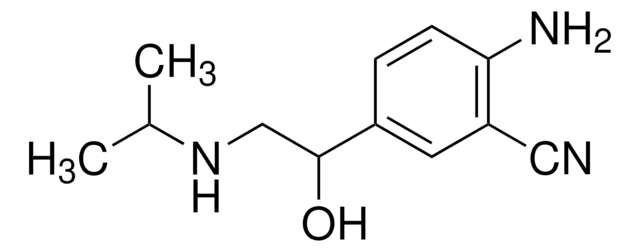S3442
SB 216763
>98% (HPLC)
Synonym(e):
3-(2,4-Dichlorophenyl)-4-(1-methyl-1H-indol-3-yl)-1H-pyrrole-2,5-dione
About This Item
Qualitätsniveau
Assay
>98% (HPLC)
Farbe
orange
Löslichkeit
DMSO: soluble 20 mg/mL
H2O: insoluble
Ersteller
GlaxoSmithKline
Lagertemp.
−20°C
SMILES String
Cn1cc(C2=C(C(=O)NC2=O)c3ccc(Cl)cc3Cl)c4ccccc14
InChI
1S/C19H12Cl2N2O2/c1-23-9-13(11-4-2-3-5-15(11)23)17-16(18(24)22-19(17)25)12-7-6-10(20)8-14(12)21/h2-9H,1H3,(H,22,24,25)
InChIKey
JCSGFHVFHSKIJH-UHFFFAOYSA-N
Angaben zum Gen
human ... GSK3A(2931) , GSK3B(2932)
Anwendung
Biochem./physiol. Wirkung
Leistungsmerkmale und Vorteile
Rechtliche Hinweise
Lagerklassenschlüssel
11 - Combustible Solids
WGK
WGK 3
Flammpunkt (°F)
Not applicable
Flammpunkt (°C)
Not applicable
Persönliche Schutzausrüstung
dust mask type N95 (US), Eyeshields, Gloves
Analysenzertifikate (COA)
Suchen Sie nach Analysenzertifikate (COA), indem Sie die Lot-/Chargennummer des Produkts eingeben. Lot- und Chargennummern sind auf dem Produktetikett hinter den Wörtern ‘Lot’ oder ‘Batch’ (Lot oder Charge) zu finden.
Besitzen Sie dieses Produkt bereits?
In der Dokumentenbibliothek finden Sie die Dokumentation zu den Produkten, die Sie kürzlich erworben haben.
Kunden haben sich ebenfalls angesehen
Unser Team von Wissenschaftlern verfügt über Erfahrung in allen Forschungsbereichen einschließlich Life Science, Materialwissenschaften, chemischer Synthese, Chromatographie, Analytik und vielen mehr..
Setzen Sie sich mit dem technischen Dienst in Verbindung.

